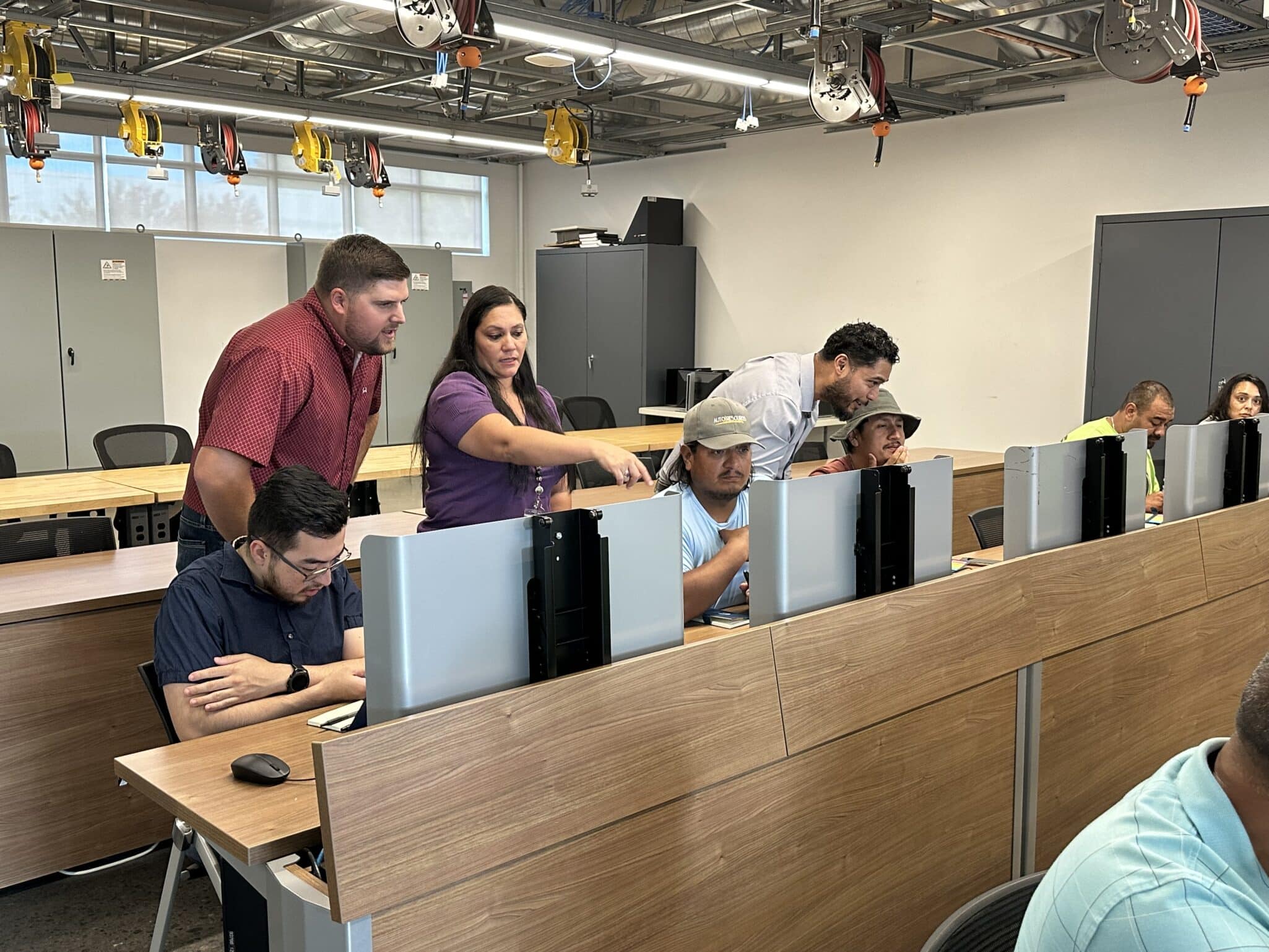Key Takeaways
- AgSTEP is reshaping agricultural education across California through competency-based learning that aligns directly with employer needs.
- Industry collaboration drives curriculum updates, ensuring students are trained on the latest technologies and ready for immediate employment.
- The Foundation for California Community Colleges and partner institutions like Merced College are linking workforce programs to statewide economic initiatives such as California Jobs First.
- Merced College’s Agriculture and Industrial Technology programs are expanding to include fast-track certifications and potential bachelor’s degrees focused on AgTech.
- The model offers national potential, with leaders envisioning replication across other U.S. states as agriculture adapts to automation, AI, and sustainability challenges.
AgSTEP: A Workforce Model Rooted in Collaboration
In California’s Central Valley—home to more than 200 crop commodities—the intersection of agriculture and technology is driving a new generation of workforce programs. At the center of this transformation is AgSTEP (Agriculture and Skilled Trades Education Program), a statewide initiative led by the Foundation for California Community Colleges (FoundationCCC) and supported by local institutions such as Merced College.
“We play a role in helping match colleges with resources to enhance programs that they offer or would like to offer,” said Jeffrey Clary, Senior Director of Climate Strategies at FoundationCCC. “In this case, we’re helping bring together a consortium of colleges to expand a very special kind of workforce development.”
AgSTEP represents a new approach to workforce readiness: competency-based education that allows agricultural workers to demonstrate existing skills and focus training only where new competencies are needed. The model is designed to scale efficiently, meeting employers’ demands while providing workers with tangible economic mobility.
Bridging Industry Needs and Student Opportunities
At Merced College, located in the heart of the Central Valley, the initiative builds upon years of applied agricultural education. “We’re proud that our AgTech program is the first competency-based program of its kind in California,” said Cody Jacobsen, Dean of Agriculture and Industrial Technology at Merced College. “It’s aligned directly with our industry partners and ensures that students can acquire real-world skills and enter the workforce quickly.”
Merced College’s upcoming Ag Innovation Center—a 22,000-square-foot facility—will feature processing labs, robotics, and automation systems for nuts, fruits, and meats. The center aims to prepare students for an industry increasingly shaped by automation, AI, and precision systems.
Jacobsen noted that fast-track industrial electronics programs at Merced College already operate at full capacity, with 85% of students securing jobs before graduation. “That’s attractive for them because they can focus on skill development and employment, not general education courses,” he said.
State Support and Scalable Impact
Clary emphasized that state-level engagement is critical for programs like AgSTEP. Through initiatives such as California Jobs First, public funding has targeted agricultural regions often overlooked in economic development plans. “The agricultural regions of California are sometimes the more economically challenged ones,” Clary explained. “This investment helps strengthen regional economies and supports workforce alignment in key sectors like agriculture and climate resilience.”
Jacobsen added that this represents a turning point for agricultural education: “Historically, agriculture wasn’t prioritized in workforce investment—but now the state has doubled down. Agriculture is critical, and programs like AgSTEP are ensuring we move with the times.”
National Model for Workforce Transformation
Both leaders see AgSTEP as a potential national model for hands-on, employer-aligned training. “It’s the only competency-based agricultural training program we know of,” Clary said. “It offers workers a clear pathway to certification and economic opportunity.”
Jacobsen agreed, noting that while regional specialization will vary—such as leafy greens in California or grain in the Midwest—the underlying digital literacy, food safety, and job-readiness skills are transferable nationwide.
In five years, both envision AgSTEP producing a pipeline of graduates from associate and bachelor’s programs who are meeting industry needs and driving agricultural innovation. “Agriculture wasn’t a sexy topic twenty years ago, but it is now,” Jacobsen said. “As technology and investment accelerate, our programs must scale to match.”
AgSTEP: Closing the Gap Between Education and Industry
For both educators and policymakers, the message is clear: the agricultural workforce must evolve alongside technology. “The community college’s main purpose is to prepare students for employer partners,” Jacobsen concluded. “If we’re not doing that, we’re doing a disservice.”
Clary added: “Leaders should not forget about the agricultural sector. Technological improvements are absolutely necessary for us to move forward—and programs like AgSTEP are showing how.”


